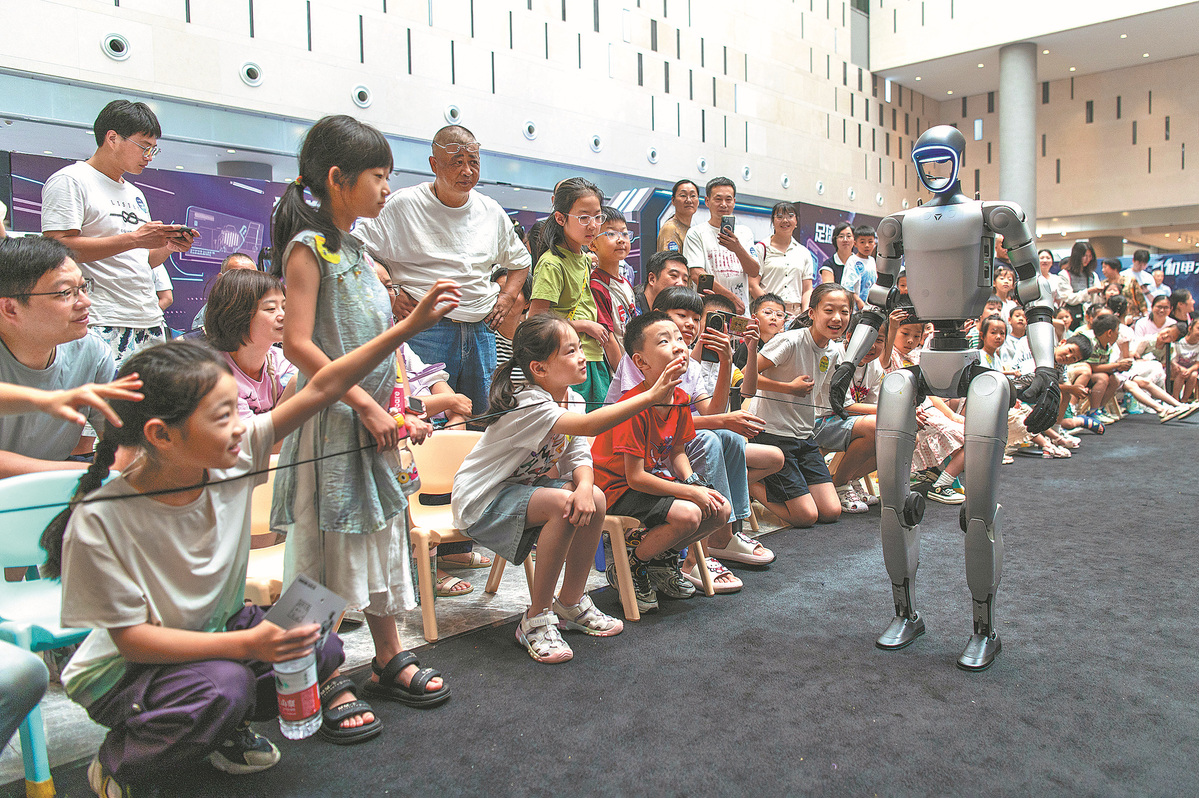Unitree likely to go public this year


Chinese robotics firm Unitree Robotics is expected to submit its listing application documents between October and December, which industry experts said is set to become one of the most anticipated IPOs in the global robotics sector.
The Hangzhou, Zhejiang province-based company, best known for its humanoid and quadruped robots, is preparing to tap the capital market as China races to secure a lead in embodied artificial intelligence — the combination of robotics and AI that enables machines to interact physically with the real world.
Unitree said on its X account earlier this week that 65 percent of its revenue last year came from quadruped robots, while humanoid robots contributed 30 percent and the rest was derived from components.
About 80 percent of its robotic dogs were sold for research, education and consumer use, with the remaining 20 percent deployed for inspection work and firefighting. Humanoid robots were sold entirely for research, education and consumer applications, the company said.
In an interview with China Daily last month, founder and CEO Wang Xingxing said that the IPO is by the book and will be "a milestone in governance" for the company.
"It's like taking the gaokao," Wang said, referring to China's national college entrance exam. "A stage-by-stage thing — a summary of nine years of work, and an answer sheet for our shareholders."
Though he has not disclosed the firm's intended listing venue, several sources told China Daily that Shanghai's STAR Market is the most likely destination. According to filings with the China Securities Regulatory Commission, the company is under listing guidance by CITIC Securities.
Unitree's G1 humanoid is now priced at 99,000 yuan ($13,600), while its Go2 robotic dog starts at 9,997 yuan. Earlier this year, Unitree cut prices for its R1 humanoid robot to 39,900 yuan to widen adoption.
The affordability of its products, compared with rivals in the United States, has fueled widespread appearances at meetings, restaurants and entertainment events.
Wang said annual revenue has exceeded 1 billion yuan and that the company has been profitable since 2020, a rarity in the capital-intensive robotics sector.
"This is not a simple discounting tactic but a deliberate push to lower entry barriers, stimulate demand and accelerate the creation of a broader commercial ecosystem," he said.
Wang predicts that humanoid robots could be leased to factories, farms and households within a few years, as ecosystems mature and developers build new applications.
"We could see such obvious progress in two to three years," he said, adding that large-scale deployment should take less than a decade. In an intriguing aside, Wang suggested governments might one day tax robots as they do with human workers once machines carry out a substantial share of labor.
Half of Unitree's revenue now comes from overseas, aided by an export push that began in 2018. "Global humanoid shipments are expected to double annually, and if breakthroughs come sooner, the sector will hit hundreds of thousands of units in two to three years," Wang said.
Analysts say China is positioning humanoid robots as a fresh growth engine reminiscent of its rapid rise in electric vehicles. An April industry report said China could likely produce more than 10,000 humanoid robots this year and capture over half the global market.
The sector has also become a magnet for capital. Rival startup AgiBot recently sought control of a materials company via equity transfer in what insiders saw as a back-door listing play, while July alone saw several fundraising rounds involving backers such as Tencent, Alibaba and Geely. ITjuzi.com said 133 investment deals were inked in China's embodied AI sector so far this year, worth over 18 billion yuan, already exceeding the 2023 totals.
"The combined efforts will shape the future in our favor," said Rick Xiong, general manager of the Beijing Embodied AI Robotics Innovation Center. "Chinese robot companies have the right timing, the right place and the right people to accelerate the humanoid robot push."




































